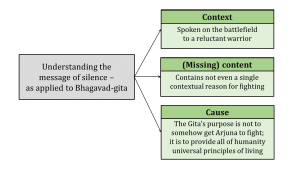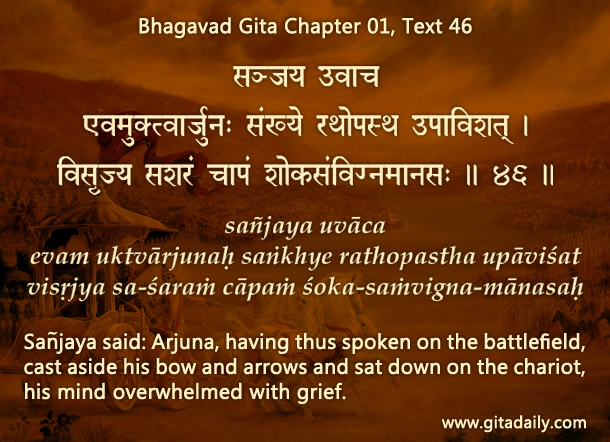Suppose we are discussing an important issue with an expert. To understand their position on the issue, we will contemplate the words they speak. Significantly, we can often gain further understanding by contemplating what they don’t speak.
For example, suppose a police chief gives a press con ference about the murder of someone prominent in a city, but doesn’t mention the suspect’s name. That silence would be telling. What might it tell? Maybe the suspect and the victim belong to two mutually hostile communities, and the police want to prevent communal riots.
ference about the murder of someone prominent in a city, but doesn’t mention the suspect’s name. That silence would be telling. What might it tell? Maybe the suspect and the victim belong to two mutually hostile communities, and the police want to prevent communal riots.
What is not spoken may tell as much as, if not more than, that what is spoken. How can we sense the message conveyed through silence? By considering three things: context; (missing) content; and cause
Let’s apply this three-step approach to the Bhagavad-gita and explore the message it conveys through silence:
Context: The Gita is spoken on a battlefield to the powerful warrior, Arjuna, who was unwilling to fight (01.46) — and it concludes with Arjuna ready to fight (18.73).
(Missing) content: A message meant to get someone to fight would naturally contain the key reasons for the fight. In the Gita’s context, such reasons would include the atrocities committed by the opponents, the Kauravas, against Arjuna’s loved ones — especially egregious was their attempt to disrobe Draupadi in the royal assembly. Yet the whole Gita contains not one reference to any of these.
Cause: The Gita’s silence points strongly to its central purpose: the Gita was spoken not merely to somehow get Arjuna to fight; it was spoken to share universal principles of living that would apply not just to Arjuna but to all of humanity for all time to come. That those principles required Arjuna to fight was only circumstantial — a call to arms is by no means the Gita’s core message. By thus appreciating its purpose, we can avoid the pitfall of reducing the Gita to a justification for violence.
One-sentence summary:
Silence can be telling — it just tells quietly.
Think it over:
- How can we sense the message conveyed by silence?
- What is the Gita silent about?
- What does this silence tell?
***
01.46: Sanjaya said: Arjuna, having thus spoken on the battlefield, cast aside his bow and arrows and sat down on the chariot, his mind overwhelmed with grief.
To know more about this verse, please click on the image


Speech is Silver ,but Silence is Golden